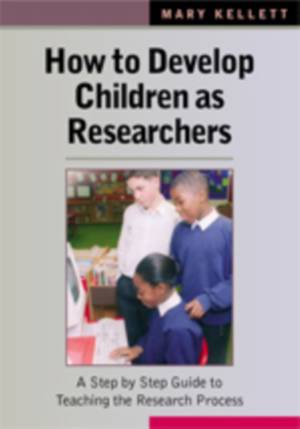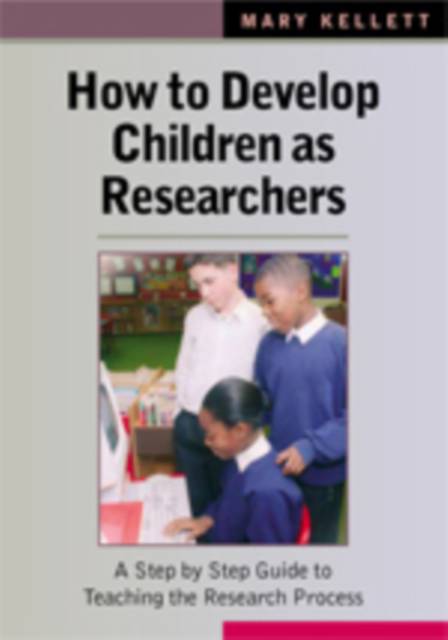
Bedankt voor het vertrouwen het afgelopen jaar! Om jou te bedanken bieden we GRATIS verzending (in België) aan op alles gedurende de hele maand januari.
- Afhalen na 1 uur in een winkel met voorraad
- In januari gratis thuislevering in België
- Ruim aanbod met 7 miljoen producten
Bedankt voor het vertrouwen het afgelopen jaar! Om jou te bedanken bieden we GRATIS verzending (in België) aan op alles gedurende de hele maand januari.
- Afhalen na 1 uur in een winkel met voorraad
- In januari gratis thuislevering in België
- Ruim aanbod met 7 miljoen producten
Zoeken
How to Develop Children as Researchers
A Step by Step Guide to Teaching the Research Process
Mary Kellett
Hardcover | Engels
€ 291,95
+ 583 punten
Omschrijving
This book will be really useful to all teachers of upper Primary/lower Secondary pupils but will be especially useful as a resource for using with gifted children of 9 to12 years, as it will promote and support the type of self-directed, investigative enquiry that they enjoy. The author also emphasises the importance of the research process rather than the written product, which will appeal to all those children who dislike the written presentation of work! Each chapter outlines the learning outcomes, has a timed teaching content, and suggests a core activity; it also suggests differentiation and includes some simple 'games'. It is fully supported by photocopiable resources, making it a complete programme of work. Although written for a specific age group, this is such an excellent basic guide, it would be of use to anyone conducting research for the first time' - Eve Wilson, Education Consultant, National Association for Gifted Children 'This inspirational and innovative programme will be welcomed by all those who want to teach research skills to children. Clear discussion notes, activities and games provide everything a busy teacher needs to be able to deliver the programme. No prior knowledge of research is necessary. This is an ideal resource for those who want to offer pupils the opportunity to make their voice heard through the research process' - Dr. Ruth MacConville, Head of SENS, London Borough of Ealing 'An excellent book... a very informative guide to supporting teachers in delivering a comprehensive research training package to children and young people' - Children & Society Why teach research methodology to children? An effective and meaningful way of enhancing children's learning, doing research, empowers children to participate actively in their own education and to make original contributions to knowledge. The research carried out by children is also a vital key to improving our own understanding of children and childhood. This book's unique child-centred perspective provides an easy-to-follow model for teaching research methodology to children aged 10 and upwards. Packed with practical tips and photocopiable resources for the classroom, each chapter contains: "" a core activity designed to distil the teaching content and engage children with the main learning objectives "" ideas for supplementary activities and games "" follow-up homework "" mini boxed glossaries containing key research terms and their definitions "" and suggestions for further reading. Key topics covered include: research design, data collection techniques, data analysis, dissemination, and children as active researchers.
Specificaties
Betrokkenen
- Auteur(s):
- Uitgeverij:
Inhoud
- Aantal bladzijden:
- 192
- Taal:
- Engels
Eigenschappen
- Productcode (EAN):
- 9781412908290
- Verschijningsdatum:
- 22/02/2005
- Uitvoering:
- Hardcover
- Formaat:
- Genaaid
- Afmetingen:
- 171 mm x 247 mm
- Gewicht:
- 467 g

Alleen bij Standaard Boekhandel
+ 583 punten op je klantenkaart van Standaard Boekhandel
Beoordelingen
We publiceren alleen reviews die voldoen aan de voorwaarden voor reviews. Bekijk onze voorwaarden voor reviews.









